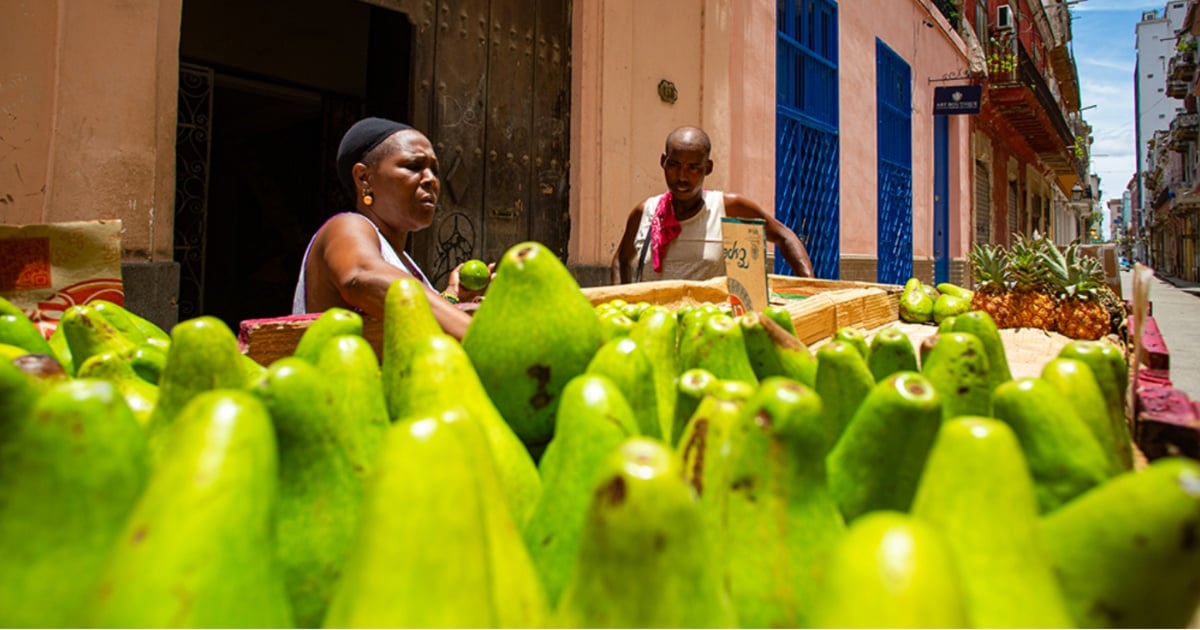The Cuban government is set to receive a $9.3 million funding package from the Food and Agriculture Organization (FAO) of the United Nations, aimed at enhancing food production in both the agricultural and fishing sectors of western Cuba. This funding, disclosed on the FAO's official website, comes in collaboration with the Global Environment Facility (GEF) and the Center for Research on Protein Plants and Bionatural Products (CIPB) to kickstart a "new project" focused on food production through a circular economy approach and the implementation of financial incentives in both public and private sectors.
This initiative is part of the Global Integrated Program of Blue and Green Islands and is slated to last five years with the goal of "transforming" agri-food systems across 53,850 hectares of land. According to the FAO's statement, this effort would benefit ten municipalities in the island's western region, although specific municipalities were not identified. The project aims to secure food production while protecting, restoring, and promoting sustainable use of terrestrial and marine ecosystems in these areas.
Amidst Cuba's severe food shortages, the government promotes this project as a "global program" that will positively impact approximately 18,694 individuals, with more than half being women. The funding is expected to restore 7,000 hectares of agricultural land and 600 hectares of forests, while also aiming to reduce greenhouse gas emissions (CO2) by 1.2 million tons. "The initiative will integrate ecosystem service approaches into local development programs and strategies, promoting nature-based solutions in local agri-food systems," emphasized the FAO.
Following the devastation caused by hurricanes Rafael and Oscar in late 2024, the United Nations (UN) increased the funding needed for its action plan to $78.3 million to address the severe damages caused by these natural disasters and two high-magnitude earthquakes. Initially, the plan aimed to mobilize $33 million to respond to the impacts of Hurricane Oscar, which struck the northeastern tip of the island on October 20.
Soon after, the plan was revised to include damages from Hurricane Rafael, which hit the western region on November 6, as well as two subsequent earthquakes measuring magnitudes of 6 and 6.7 in the country's southeast. At that time, the FAO provided $680,000 for the recovery of agriculture, forestry, and fishing in the municipalities of San Antonio del Sur, Imías, Maisí, and Baracoa. The measure sought to rehabilitate short-cycle crop production, recover livestock and fishing production, and improve the livelihoods of farmers and fishermen.
Despite these efforts, the country still grapples with a significant lack of basic food supplies for its population and a downturn in agricultural production. The government has not clarified how the budget allocated by the UN was utilized to alleviate the crisis's effects.
Key Details on Cuba's Food Production Initiative
What is the purpose of the $9.3 million funding from the FAO?
The funding is intended to enhance food production in Cuba's agricultural and fishing sectors through a circular economy approach, promoting sustainability and financial incentives.
How will the initiative benefit Cuba's food systems?
The initiative aims to transform agri-food systems across 53,850 hectares, benefiting ten municipalities and approximately 18,694 people, focusing on ecosystem restoration and sustainability.
What challenges does Cuba face despite these efforts?
Cuba continues to struggle with significant food shortages and decreased agricultural production, and the government has not specified how previous funding was utilized to address these issues.
